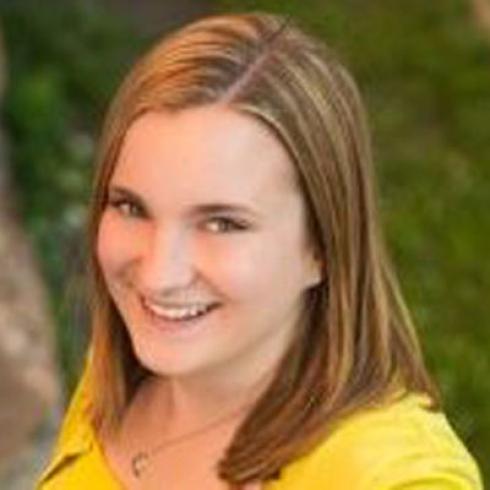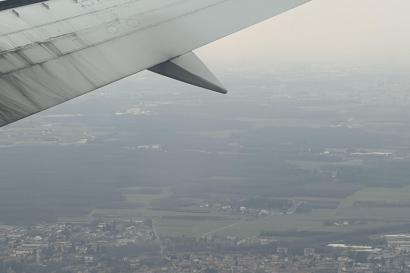Watching Stonehenge rise up from the Salisbury Plain was surreal.
It was a gorgeous day, so I had decided to walk the half-mile through grassy plains from the visitor center to Stonehenge itself instead of taking the bus. I had expected to feel strange there, to be capitivated by the otherworldliness of the stones. And it was a bit eerie. No one knows, after all, just what compelled ancient man to haul gigantic stones hundreds of miles to that exact spot. It is also unclear just what the site was used for. Our tour guide told us that human remains in the area had been traced from as far away as Switzerland, so it was clearly a very important place. Thousands of years later, tourists from across the world still make their way to Stonehenge, marvelling over the stone circle in the same way our ancient ancestors might have.
How mysterious! But the sky was blue, the sun was shining, the air was fresh, the rolling plains around the monument took my breath away, and I had things other than the mysteries of ancient man on my mind. Standing in the footsteps of neolithic men and women who had travelled untold miles to the site on some sort of pilgrimage, I was thinking about migration.
As news broke this weekend of the President’s executive order banning immigration and travel to the United States by nationals of seven different nations, I could hardly look away from my Facebook feed. My friends in college come from all over the world, so my initial fear was that any of them were facing revoked student visas and deportation. When it became clear that all of them were safe, at least for the immediate future, I thought about the people all over the world who were suddenly living in a state of immigration limbo. And because I am currently studying abroad in the UK on a student visa (and because I have a habit of imagining the worst), I thought about what would happen if I was suddenly placed in that kind of limbo.
Living as a United States citizen in the United States, freedom of movement is not something I think about often. Studying on a visa in the United Kingdom has been a humbling reminder of what life under a different immigration status can feel like. My service-learning placement hours and attendance at classes must be tracked carefully to assure that I maintain my eligibility to stay in the UK. I need to bring proof of enrollment in my program with me, as well as my passport, when I go on trips outside of the country. I get asked different types of questions at immigration than I would if I was just travelling, and definitely different questions than if I was a UK citizen.
Freedom of movement, the freedom to travel and study in other nations, is an unbelievable privilege. And it is so easily overlooked. My US passport allows me to travel across the world, experiencing a new way of life and connecting with new people, and still return home at the end of the day. It is invaluable. It is a blessing. And I’m grateful to have the chance to use it.
The day after visiting Stonehenge, we visited the town of Bath. It’s a beautiful little town full of gorgeous tan stone buildings, sloping cobblestone streets, and the sound of seagulls. People have been travelling to the town since medieval times. Jane Austen herself lived there for a few years, penning one of my favorite of her quotes in a novel set in Bath:
"If adventures will not befall a young lady in her own village, she must seek them abroad."
Visiting the museum at the Roman Baths, I learned that the Roman soldiers and travellers at what was then a far-western outpost of the Empire came from across Eurasia. Writing on one solider's tombstones revealed that he came from what is today Germany. In another display case, the excavated remains of one ancient traveller found in Bath were showcased. Tests on the remains revealed the man to be of Eastern Mediterranean descent. The placard read that he was likely from, of all places, Syria. I chuckled at the irony... and so did a few people around me.
The realizations I had about human migration in Stonehenge and Bath haunt me even more than the sight of Stonehenge rising from the plain. Not least of which is the realization that, even thousands of years ago, our ancestors knew how to get around.
I’m proud, and privileged, to be following in their footsteps.

Angela Pupino
<p>Hi, I’m Angela! I’m a junior at American University, where I’m majoring in International Studies and minoring in Public Health. I enjoy drinking hot chocolate, reading good books, and singing along to *every* song on the Hamilton soundtrack. I grew up in the Rust Belt, live in DC, and can’t wait to study healthcare and experience life in London. I’m not throwing away my shot!</p>









